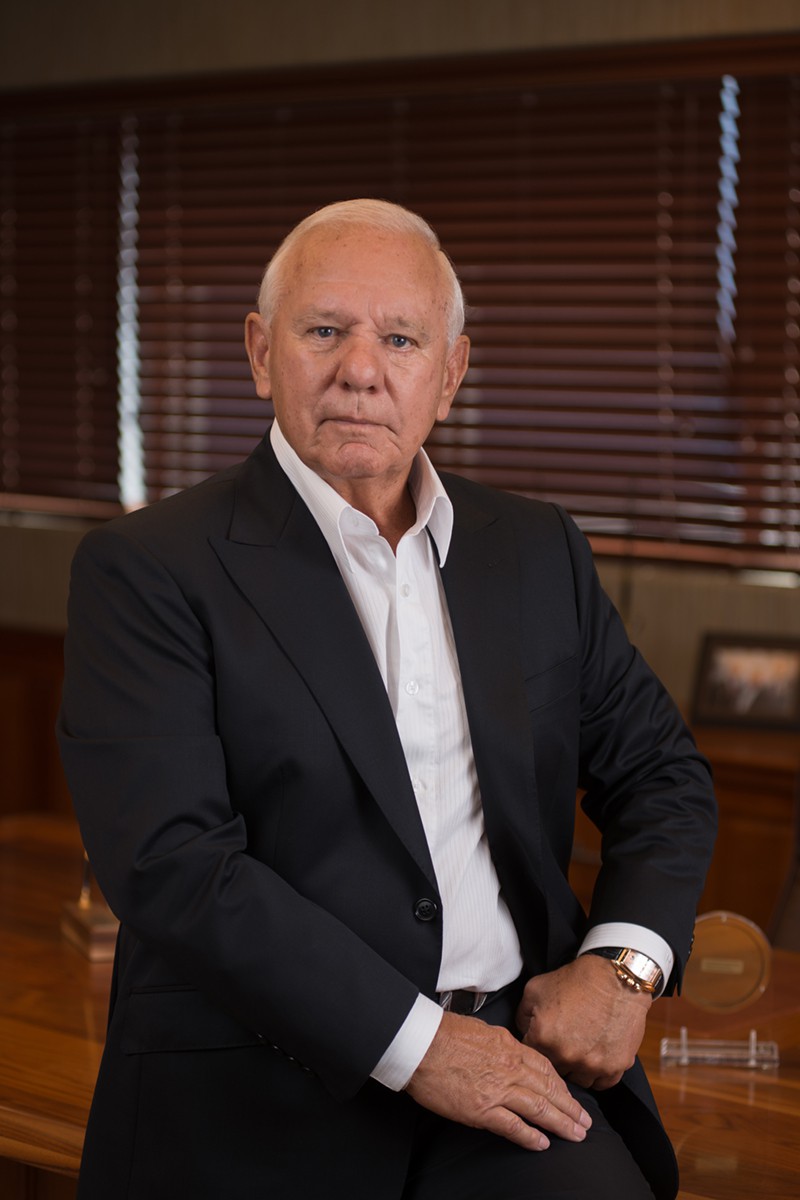The global oil market is awfully hard to move — even for the president of the United States.
The news that Donald Trump was elected to become the 45th president of the United States has a lot of people wondering what that will mean for their investments. President-elect Trump has made some very bold statements about where he wants to see the oil and gas industry in America go: in a word…up. The real tough question, though, is whether those policies should change an investor’s approach to oil stocks.
Let’s take a look at some of the things that Trump has said about oil and investigate whether or not he could have a profound impact on your portfolio over the next several years.

IMAGE SOURCE: DISNEY ABC TELEVISION GROUP VIA FLICKR.
The party line
There are a few things that President-elect Trump has stated are the core principles of his policy on oil and gas in the United States, but they all pretty much boil down to a couple key points. He wants to increase oil and gas production in the U.S. by leasing more federal land for drilling, lifting moratoriums on offshore leasing, and lifting some key regulations that hinder growth. The stated objective of these policies is to increase production from the United States so much that it will significantly reduce oil imports.
From policy to portfolio
When trying to apply presidential policy to making definitive investment decisions in the oil industry, there are four critical things you need to consider:
1) Oil is a globally priced product that considers much more than what goes on in the U.S.
There is no doubt that from a production and consumption standpoint, the U.S. plays a big role in the global oil market. We are a top three producer, and our total consumption is second to none. That being said, the U.S. still represents only 13% of global oil production and 19% of total consumption. There are a lot of factors that go into the remaining 87% of production and 81% of consumption that may not have any bearing on U.S. oil and gas policy.

IMAGE SOURCE: GETTY IMAGES.
2) Most U.S. oil companies are more tied to the global market than the American one.
In many cases, U.S.-based oil and gas companies generate a large portion of their revenue and earnings from all around the world. Let’s take, for example, America’s largest oil and gas company, ExxonMobil. According to its most recent earnings report, only 21% of its total oil production is in the United States, and only 6% of its operational earnings came from the U.S.
This is the case for many of America’s largest integrated oil and gas companies, oil and gas equipment and services companies, and even some refining companies. So before making an investment in a U.S. oil company based on the possibility of increased oil and gas activity in the U.S., keep in mind that it may not generate much of its profits in the U.S.
3) Supply and demand economics will always win.
Every oil company and every oil-rich country in the world wishes it had enough clout to set the price of oil, but the fact of the matter is that no one player is large enough to dictate price all by themselves. Even OPEC’s efforts to dictate prices aren’t as effective as many might think. After all, if it was really that good at dictating oil prices, would it enact a policy that has so far harmed many of its members?
It all comes down to how cheaply companies — or countries in some cases — can produce oil to satisfy the current demand for oil and gas, while making a decent enough return on that production to be able to reinvest in the business and generate a profit for the owners.
As my grandfather would put it, “You can bring a horse to all the water in the world, but you can’t force it to drink.” The same can be said of oil and gas producers. You can open all the land and offshore blocks in the world to them, but if they cannot generate a return from producing that oil or gas, they won’t spend money to develop it. With oil prices in the $40-$50 a barrel range, there aren’t a lot of unexplored oil and gas properties in the U.S. that can be tapped and produce a return.
4) Your investment time horizon is (hopefully) much longer than any president’s tenure.
Let’s all remember that a president can only stay in office for a maximum of eight years. If you are investing over the long term, chances are that your investment in a single stock or a mutual fund will last much longer than any presidential term. If that is the case, then making drastic changes based on what can happen in a four- or eight-year time frame may go against your original investment thesis.
Many of the oil and gas companies you are likely considering have existed through both Democratic and Republican administrations, and if you were to ask many of them how much the president’s affiliation weighs on their long-term investment decisions, chances are they will say little to none. If you are looking to invest in this industry, you should embrace a similar mindset.
What a Fool believes
I’m sure that there will be a lot of investing hot takes that will say a Trump presidency will be a boom for the oil and gas industry in the U.S. While the things he has said on the campaign trail sound like they could make some big changes to the investing landscape in the U.S., investors need to keep in mind that there are much larger factors at play in the oil market.
It’s entirely possible that the oil and gas market will be in a boom time during a Trump presidency. It’s just as possible that policies to increase production in the U.S. will prolong the oversupply of oil that has kept prices low and deeply cut into oil companies’ profits. Whatever does happen, though, your investment thesis for any oil stock should give much more weight to the fact that oil is a global product over which the U.S. doesn’t have that much sway, and that supply and demand economics will always come before policy.
So, please, invest accordingly.
The $15,834 Social Security bonus you could be missing
If you’re like most Americans, you’re a few years (or more) behind on your retirement savings. But a handful of little-known “Social Security secrets” could help ensure a boost in your retirement income. For example: one easy trick could pay you as much as $15,834 more… each year! Once you learn how to maximize your Social Security benefits, we think you could retire confidently with the peace of mind we’re all after. Simply click here to discover how to learn more about these strategies.
Tyler Crowe and The Motley Fool own shares of ExxonMobil. You can follow Tyler at Fool.com or on Twitter @TylerCroweFool.
Try any of our Foolish newsletter services free for 30 days. We Fools may not all hold the same opinions, but we all believe that considering a diverse range of insights makes us better investors. The Motley Fool has a disclosure policy.
















